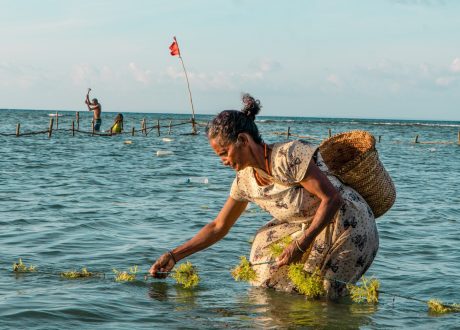
Egypt’s achievement of WHO’s ML3 contributes to attaining SDGs
Egypt has achieved a significant milestone in medicines regulation, attaining maturity level 3 (ML3) in ...

United Nations (UN) Deputy Secretary General Amina Mohamed highlighted the critical state of the Sustainable Development Goals (SDGs) as only 17 percent of the targets are on track although the 2030 deadline approaches.
Speaking on behalf of Secretary-General António Guterres, Mohamed called for immediate and decisive action to salvage the faltering SDGs.
During the ministerial meeting of the High-Level Political Forum (HLPF) on sustainable development, she emphasized the need to slash military budgets and instead channel funds towards peace and development.
“Future generations deserve more than 17 percent of a sustainable future,” she emphasized, outlining a four-pronged strategy for urgent acceleration in a bid to meet the 2030 deadline for the Goals.
The first step, she stressed, is to establish peace, underscoring that political and financial resources should be redirected from conflicts to development efforts.
She also emphasized the importance of advancing green and digital transition, urging nations to enhance their climate action plans by 2025, aligning them with the 1.5-degree Celsius limit in line with the Paris Agreement and invest in expanding digital connectivity.
Addressing the financial challenges impeding SDG progress, Mohammed pointed out the growing financing gap and destabilizing financial conditions in many developing countries.
She acknowledged ongoing reform of multilateral development banks and the recycling of special drawing rights but called for more robust measures.
“We must go further and faster to deliver an SDG Stimulus,” she urged, calling for increased lending capacity, expanded access to contingency financing, and comprehensive debt solutions.
In conclusion, Mohammed reiterated the SDGs’ promise to “leave no one behind”.
She emphasized the need to prioritize vulnerable populations, uphold the rights of persons with disabilities and combat gender inequality.
“Achieving this agenda means placing vulnerable people and groups at the forefront of national development plans, policies and budgets,” she said.
Paula Narváez, President of the Economic and Social Council (ECOSOC), underscored the body’s critical role in steering the implementation of the SDGs.
“Throughout the cycle of the Economic and Social Council, I have prioritized promoting the transformative policies that the Council’s various subsidiary bodies can offer to implement the SDGs.”
She emphasized the importance of tailoring these policies to meet the diverse needs of people and the planet while considering each country’s concerns.
In that context, she highlighted the key Voluntary National Reviews conducted at the HLPF, with 36 countries presenting this year. These reviews provide valuable insights into national experiences, lessons learned, and obstacles encountered in implementing the SDGs.
“We were able to explore in greater depth the reasons for the delay in implementation, but we were also able to hear from governments themselves and interested parties about the good practices that we can reproduce,” Narváez noted.
Egypt has achieved a significant milestone in medicines regulation, attaining maturity level 3 (ML3) in ...
A total of 157,000 beneficiaries – representing over 38,000 households – got a boon of ...
The United Kingdom and Australia have contributes about $ 22 million to support the efforts ...


اترك تعليقا